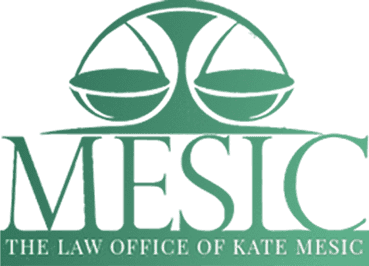
Selling a Business in Florida
Explore Your Legal Options with Our Experienced Jacksonville Business Lawyer
Selling or purchasing a business in Florida can be a challenging process. That said, it’s not unusual for people to experience unnecessary and costly complications when they rely solely on the services of a Certified Public Accountant (CPA). It is crucial to remember that negotiations should not be adversarial. If both sides retain experienced legal counsel, the transaction should go smoothly.
At Law Offices of Kate Mesic, P.A., our Jacksonville business attorney has the skills, experience, and resources to help business owners and potential buyers make smart decisions during the business sale process. Our firm can deftly guide you through each phase of this nuanced legal procedure and help you eliminate the possibility of future litigation.
Contact Law Offices of Kate Mesic, P.A. at (904) 615-8950 to arrange a consultation today.
Why Do I Need a Business Attorney?
A business lawyer can help you navigate different stages of the selling/buying process. For example, a business attorney in Jacksonville can draft the Letter of Intent and assist with negotiations. Sometimes, a seller will hire a legal professional once a Letter of Intent is received, or later when the terms have already been agreed upon, and a Purchase and Sale agreement needs to be drafted.
There is a multitude of legal, financial, and practical issues that need to be considered before you buy or sell a business in Florida. A business attorney can help minimize liability by educating you about the process and supporting your interests during the sale.
Law Offices of Kate Mesic, P.A. handles the following business sales and more:
- Automotive dealerships
- Automotive repair shops
- Insurance agencies
- Retail stores
- Real-estate vacation agencies
- Counseling practices
Law Offices of Kate Mesic, P.A. has represented both sellers and buyers in a variety of transactions that encompass very small sales and million-dollar deals. Our firm has also facilitated transactions involving a variety of franchise businesses, including home care services, pet boarding facilities, residential janitorial services, and more.
Selling Your Business
Interestingly, the words “selling a business” are often misused because the phrase can indicate two different procedures.
There are two ways to “sell a business” in Florida:
- The first method involves the sale of the actual legal entity; in other words, the sale of the business itself. This means that the seller will sell stock in his corporation or membership interest in the LLC.
- A very basic example is when a Seller owns a corporation (ABC Inc.) and then proceeds to sell their shares rather than just the assets (furniture, equipment, supplies, intellectual property, etc.) In this scenario, the Buyer purchases the shares and agrees to take on everything from ABC. Inc.’s past.
- This can be dangerous for a Buyer because they need to assume all liabilities from the corporation.
- The second type of business sale is an Asset Sale. An Asset Sale takes place when the Buyer purchases the assets of a corporation/LLC, but not the actual entity. This, of course, limits the liability on the Buyer’s part going forward. For this reason, this method is the most common means of selling a business in the state of Florida.
As a Buyer, What Issues Should I Be Aware Of?
When Buying a Business
A Buyer needs to be aware of the following issues when purchasing a business:
- Avoid any previous liabilities by the company.
- Exercise due diligence to check that the profits of the business and financials are accurate and reliable. This includes:
- Liens and judgments.
- Licenses, if applicable (are they transferrable?).
- Sales tax issues
- Make sure that you can duplicate improve the performance of the business.
- Consider a non-compete for the seller to eliminate future competition.
- Evaluate key employees, software, and technologies that could be included as part of the Purchase and Sale Agreement.
- Assess the location of the business: negotiate and ensure that the commercial lease and other relevant contracts are transferred and in place for the business to be successful.
The Buyer’s Perspective on the Purchase and Sale Agreement
A Buyer needs to consider the following factors before drafting a Purchase and Sale Agreement:
- The Buyer usually prepares the Purchase and Sale Agreement and provides it to the Seller.
- The Buyer needs to include an inspection period of at least 15-60 days in the agreement, depending on what type of business is being purchased.
- The Buyer should require the Seller to turn over any relevant documents and records within a certain number of days of the signing of the agreement to make sure the Buyer has ample time to inspect and analyze the information.
- A Buyer purchasing a business with sales tax obligations (not a service business) must be very careful, as it is impossible to be 100% insulated from the Seller’s tax liabilities. Florida law places the burden upon the Buyer to figure out if the Seller has paid the sales taxes.
- A Buyer needs to negotiate a right to terminate the Purchase and Sale Agreement for any reason during the inspection period – this includes making the initial deposit (which should be in escrow until closing) fully refundable.
- The Buyer also needs to make the purchase price contingent on obtaining a specific level of sales or revenue targets during the first year after the purchase of the business. This term in the Purchase and Sale Agreement usually comes up when establishing the purchase price for the business, as the Buyer is using the business’ past performance as a metric of success and revenue.
- A Buyer should consider establishing a set time period – a minimum of two weeks is suggested – for the Seller to train the Buyer on how to operate the business effectively. Oftentimes, the Seller will stay on as an employee or consultant for a period of time.
- Please that if the Seller does remain as a consultant, you need to draft a separate consulting agreement.
- A Buyer must be aware that a business’ most valuable assets can be goodwill, intellectual property, and going concern value, rather than any tangible assets.
A huge consideration for the Buyer is how the purchasing money will be allocated. The Buyer and Seller should include that as part of the Purchase and Sale Agreement to avoid any confusion and legal issues in the future. This step cannot be accomplished without an experienced CPA.
Also, please note the following: If both the Seller and the Buyer are legal entities (LLCs, corporations, etc.), the Buyer needs to consider having the owners of the Seller company guarantee at least some of the representations and warranties, as the actual entity will likely be dissolved after the sale.
As a Seller, What Issues Should I Be Aware Of?
When Selling a Business
A Seller needs to be aware of the following issues when selling a business:
- A Seller must make sure that they will be paid on time; usually, this involves trying to avoid Seller financing.
- When Seller financing is unavoidable, make sure your legal counsel prepares all the necessary documents on your behalf, including the promissory note, security agreement, and so on.
- The Seller needs to avoid making unreasonable or inappropriate representations or warranties in the Purchase and Sale Agreement; otherwise, the Seller is just opening the door for future litigation.
- A Seller is usually well-aware of the issues involving the business they are trying to sell. It’s important that you identify and resolve any potential issues before listing the business for sale.
- The Seller should consult a CPA and possibly a business broker if the value of their business is in question.
- A Seller might want to consider getting an appraisal prior to listing the business.
The Seller’s Perspective on the Purchase and Sale Agreement
A Seller needs to consider the following factors before signing a Purchase and Sale Agreement:
- The Seller should anticipate possible issues and conduct a judgment and lien search on the business and resolve the problems ahead of time. This can help avoid the failure of the business sale should the Buyer discover something they don’t like.
- The Seller should have all documentation, including corporate filing or annual minutes, up to date, especially if the business is an LLC or corporation.
- A Seller must check that all state, county, and city licenses are in good standing and that other legal obligations are satisfied.
- A Seller can make the sale go quicker and smoother by gathering the tax returns, financial statements, and other relevant documentation that the Buyer will need for due diligence.
Ready to Start the Process? Call Our Jacksonville Business Attorney Today!
Contact the Jacksonville business lawyer at Law Offices of Kate Mesic, P.A. if you’re preparing to sell or purchase a business. No matter the complexity of your case or the extent of your needs, our team has skills and experience to help you facilitate a positive and beneficial transaction.
Contact Law Offices of Kate Mesic, P.A.at (904) 615-8950 to schedule your initial consultation today.


Our Settlements & Verdicts
Our top priority is to devise customized legal strategies that are tailored to the unique legal needs of our clients, no matter how simple or complicated their situations, might be.
-
Charges dropped Accident-Failed to Give Information and Improper Backing
-
Dismissed Accident-Leaving the Scene, Careless Driving
-
Expunged Allow Minor Alcohol at Open House Party.
-
Charges Dropped Allow Minor Alcohol ot Drugs at Open House Party
-
1 count of battery amended, others dropped Battery
-
Withhold of Adjudication Battery


